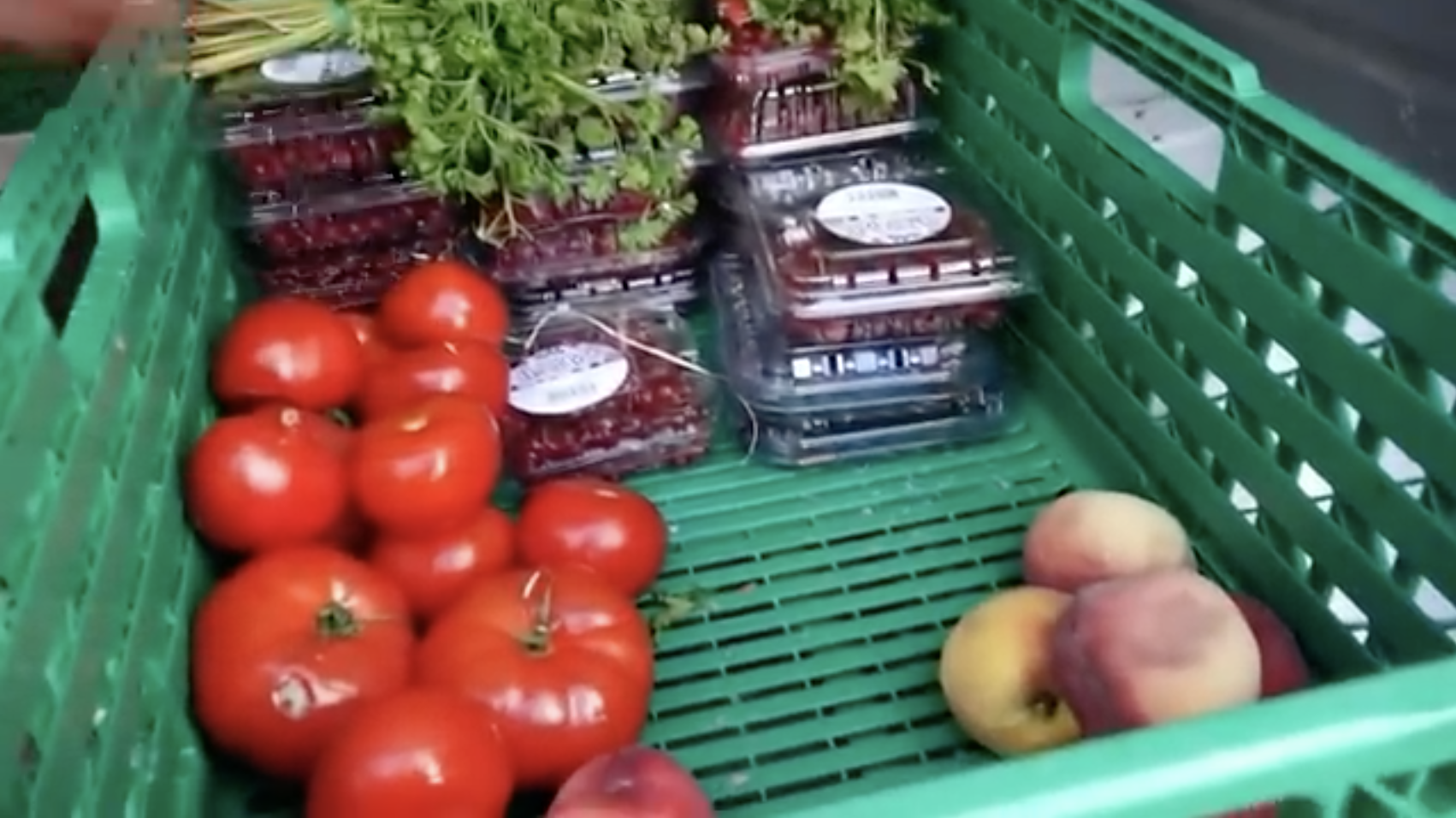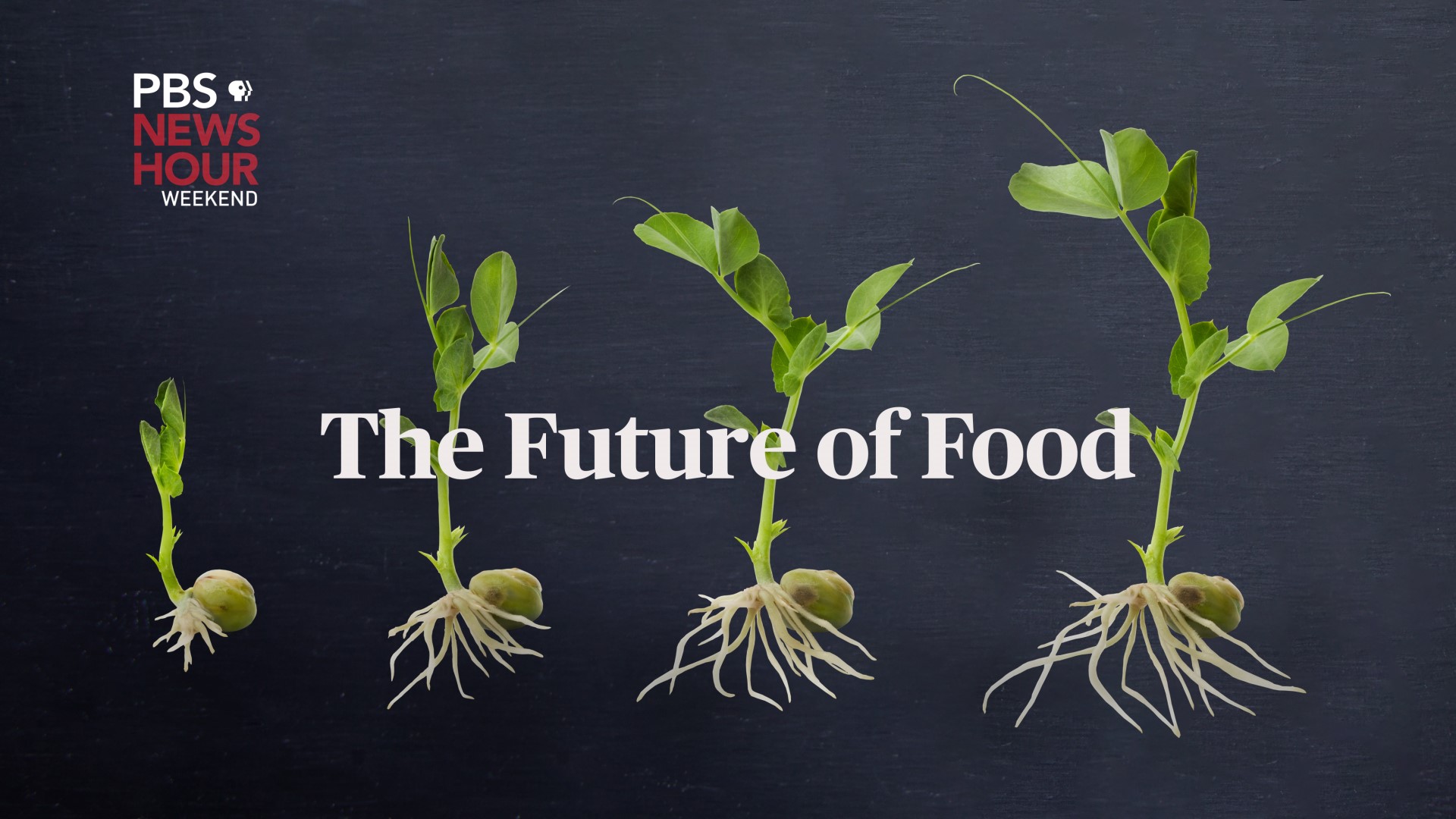
Hari Sreenivasan:
In our ongoing series, the "Future of Food," supported in part by the Pulitzer Center, we explore the problem of excess food waste and one country's potential solution. Author and contributor Mark Bittman has more.
Mark Bittman:
One third of the food produced in the world rots in the field, in transport or is simply thrown away. This is obviously not only a massive waste of food, it's also a big contributor to global warming because as it decomposes in landfills it releases methane. In fact according to the UN Food and Agriculture Organization, if food waste were its own country, it would be the third largest emitter of greenhouses gases after the U.S. and China. One country is doing something about food waste. NewsHour Weekend Special Correspondent Christopher Livesay reports from Paris.
Christopher Livesay:
The French take food seriously. The country is famous for its bread, pastries, pates and other delicacies. Lunch is so sacred here that you'll find many stores closed between about noon and 2, so workers can enjoy a long relaxed mid-day meal. The French not only appreciate food, they're committed to not wasting it. In fact, it's the law. Since 2016, large grocery stores have been banned from throwing away unsold food that could be donated to charities. Now, they must have systems in place to donate that food.
We're behind the scenes at one of the country's biggest grocery chains to see how France's landmark food-waste law works.
A truck is loaded up with tomatoes, berries, fruit, brioche and yogurt …about $340 worth of food close to the expiration date…food that in most countries would be thrown away.
Christopher Livesay:
They can't sell it any more. But they say it's still good to eat for 5 or 6 more days.
The food is donated to non-governmental organizations –NGOs — and other charities who help feed the poor.
Eric Chabert:
Fruits and vegetables, it's about 200 to 300 Euros worth that we're giving away every day.
Christopher Livesay:
Eric Chabert, this supermarket's director, says the law has improved his store's food-waste management.
Eric Chabert:
It also has an impact because if we were to throw away food, we would also increase our workload with the trash bins, which would require additional scheduling of bins removal on site. So it's beneficial on several levels.
Christopher Livesay:
Another benefit of donating food: stores can take advantage of a pre-existing tax break on as much as 60% on the inventory value of the donated food.
Eric Chabert:
It's interesting to both be able to help NGOs and get a small financial incentive to compensate for the fact that we're giving away food.
Christopher Livesay:
Guillaume Garot is a member of France's Parliament, and the author of France's Food Waste bill. He says the bill has substantially increased food donations from large grocery stores.
Christopher Livesay:
Where did the idea come from for this law?
Guillaume Garot:
I had seen reports on French TV showing some big supermarkets were taking out trash bins with perfectly edible food in them, seeing that food was being destroyed while at the same time, there are people dying of hunger. So how do you fight this? How do you fight against this scandalous way of producing to throw away? That was the beginning for me.
Christopher Livesay:
The French Federation of Food Banks agrees the law is working. It's a major middleman in the grocery store-to-charity food chain. Every morning, more than 2,700 supermarkets send nearly out-of-date food to nearly 80 warehouses around the country, rescuing 46,000 tons a year that would otherwise be thrown away.
Donations to food banks are up more than 20 percent, according to the government.
Here at the food bank, it's a mostly volunteer operation, and a race against the clock to collect, sort and then distribute food while it's still good to the thousands of local NGOs.
Some will use the food to prepare meals — 226 million a year according to the Food Bank. Others like the Salvation Army sort and distribute the donated food directly to the needy.
Aline Chassagnot:
The people who need some food are really happy to have some fresh product.
Christopher Livesay:
In France, 1 out of 5 people say they have a hard time eating enough food every day, according to a recent poll. For Angela, the Salvation Army is a life saver. She asked us not to use her last name. She has 3 kids to feed at home so she comes here once a week to get the fresh vegetables, meat, yogurts and cheese she says she can't afford otherwise.
Angela:
The children are young, they cannot be working. My husband and I are unemployed. It means a lot because before, when we didn't know about this place, we used to spend a lot to buy food in stores. This represents a lot because with this we are able to live, you know.
Christopher Livesay:
The law has had ripple effects — raising consumer awareness and helping inspire new start-ups and apps like Too Good to Go.
The app tells me about a Paris bakery where, close to closing time, I can get what they call a magic bag of their products for about three dollars and thirty cents, a sizable discount. So for three Euros, three euros, I got: let's start with the pain au chocolat; I've got some croissants in here; got a loaf of bread, looks delicious; and got what looks like a really good ham sandwich.
The law is the first of its kind in the world. But for all its positive effects, it has been criticized for not ensuring that all stores are complying. It calls for stiff penalties (about $4,000) each time a store is caught throwing away donatable food, but so far no one has been fined.
Some of the critics include NGOs themselves, who say they sometimes get food they can't use.
Christopher Livesay:
I'm not sure I would be comfortable eating a yellow broccoli.
We saw for ourselves. Broccoli sent by one grocery store was not fit to eat. Aline Chassagnot is a social coordinator with the Salvation Army.
Aline Chassagnot:
They must be green, not yellow.
Christopher Livesay:
Okay, so what do you do with this?
Aline Chassagnot:
Normally, it must go to the, to the garbage.
On this day, we saw three trash bins of food thrown away.
Christopher Livesay:
Presumably, the supermarket that donated that food received a tax benefit regardless. So the question is how do you make sure that supermarkets and other participants aren't gaming the system?
Guillaume Garot:
It's very clear that products arriving at the NGO when the consumption date has expired, fresh products especially, must not be donated. There is no doubt a need to intensify checks, public checks, on the way large supermarkets are donating.
Christopher Livesay:
Another problem, says Manon Cuillé, coordinator of an NGO called "Zero Waste," is that the law fails to address sources of food waste other than grocery stores.
Manon Cuillé:
for us there are many more solutions and measures to be adopted to prevent this food waste in the first place
Christopher Livesay:
According to France's National Environmental Agency, retail and distribution — including grocery stores — only accounts for 14% of food waste in France.
Agriculture accounts for 32 percent, followed by food processing at 21 percent and consumers at 19 percent. Restaurants contribute 14 percent.
None of these other sources are addressed in the law. As such, Cuille says she doubts the French government can meet its goal when it comes to reducing food waste.
Manon Cuillé:
They have a pretty ambitious goal, which is to reduce by 50 percent food waste before 2025. They're still lacking a lot of important obligations for agriculture and food industry. Also promote more education for the consumer or in schools.
Guillaume Garot:
I do believe we need to widen the actors involved in fighting food waste.
Christopher Livesay:
It's a global problem, says Garot. And France aspires to be a model for the world.
Guillaume Garot:
Today, countries as different as Peru, Finland and Malaysia but also some countries in Africa, are closely looking at what we've been doing in France. So what's important is to act together in the same direction.









